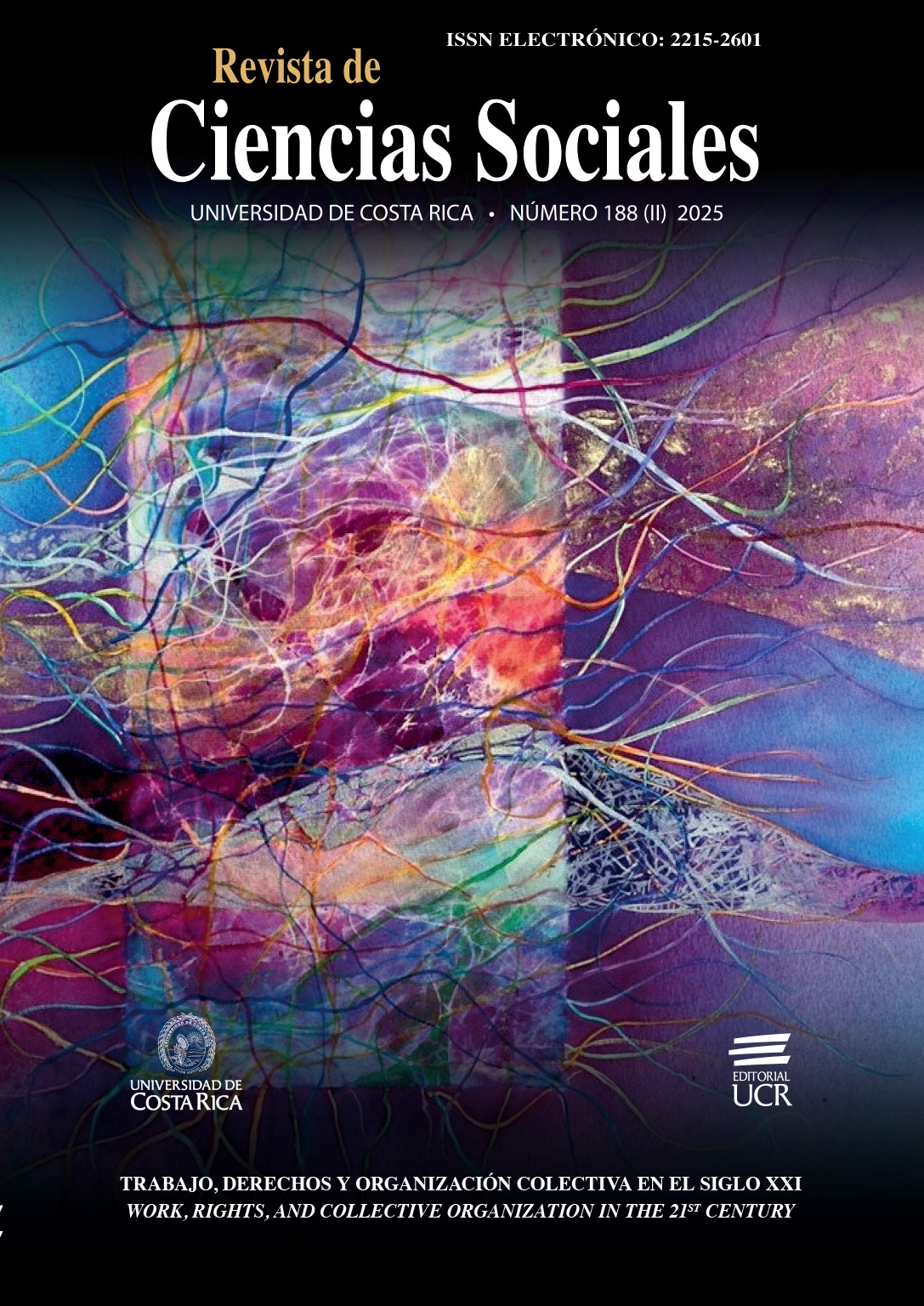Technology, climate change and innovative trade unions practices in Argentina
DOI:
https://doi.org/10.15517/afhgha44Keywords:
Argentina, trade unions, just transition, technological change, innovationAbstract
This article analyzes innovative strategies adopted by several trade unions that are part of Frente Sindical de Acción Climatica (Trade Union Front for Climate Action, FSAC) in response to a scenario of “double transition” scenario: climatic and technological transitions. The study begins in 2019, coinciding with the creation of FSAC, and continues to the present. For this purpose, influential approaches to both transitions were analyzed, and an analytical matrix of instruments was developed to survey of innovative union practices. The study prioritized qualitative methods, including interviews with union leaders, the examination of technical documents, netnography, and analysis of collective bargaining agreements. The findings reveal the emergence of innovative strategies, such as the creation of a training center on “Climate Change” with regional scope, the launch of the Bancar educational platform, the introduction of the virtual delegate figure, a paperless initiative and the establishment of environmental offices. The study also identifies tensions arising from environmental and technological challenges, which stem either from the traditional mindsets of some leaders or in the emergence of a new social actor: the young flexible worker, whose more advanced cognitive skills contrast with trade union practices rooted in experience.
Downloads
Downloads
Published
Issue
Section
License
Al someter un artículo para su publicación, las y los autores aceptan que, además de la versión impresa, se divulgue también en forma digital en el sitio web de la Revista y en bases de datos virtuales.
Se autoriza la reproducción total o parcial del o los artículos solo con permiso expreso de la Revista y del autor.
La Revista se rigue bajo la Licencia Creative Commons Attribution-NonCommercial-No Derivs 3.0 Costa Rica






